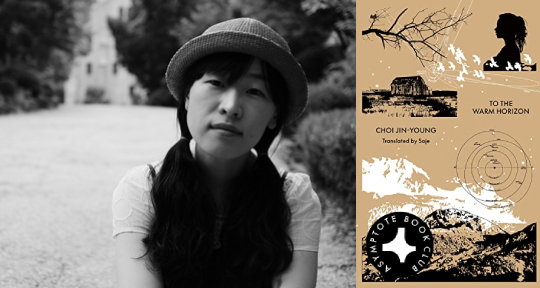What stops a cancer from killing its host? What might have prevented a grandmother from dying in a refugee camp? What allows a Deliveroo rider to keep his dignity through itinerant gig-work? Perhaps it’s care: “the connections we have with others and the everyday actions we engage in for each other” (Micaela Brinsley). Care is a vital #lifesupport—a necessity up there with shelter and air. The problem is that it’s scarce, as attested to by our brand-new Summer edition spanning 35 countries and featuring an exclusive interview with 2023 Booker International Prize winner Georgi Gospodinov, 2022 Prix Goncourt winner Brigitte Giraud’s debut in English, as well as new translations of Paul Éluard and Hamid Ismailov. In settings that take us from hospital to hospital and even one assisted suicide facility, few find it, while others seek it with increasing desperation. Patrick Autréaux’s exquisite memoir of chemotherapy, for example, describes cancer as a “cold octopus . . . groping at me as though I were some bizarre object . . . embracing me, holding me back to examine whether I was corpse-like or ecstatic, content or horrified, and offering me, snatched up in death’s vulva, sensations never before imagined.” In Inga Iwasiów’s startling novel, on the other hand, the dead moon jellyfish forming a “gelatinous strip between the water and the land” becomes a buffer between the cancer-stricken narrator and intentional death (which in Pooya Monshizadeh’s devastating Red Meadow is canceled without even a refund). Against absolute loss, Honora Spicer, in this issue’s poignant Brave New World Literature entry, opened the very text that she had requested to translate one week after her grandmother died—to the wide field of “se fue.”

The hospital is also the setting for fifty percent of this issue’s Criticism section. While Fine Gråbøl’s What Kingdom paints a portrait of intimate life at a psychiatric hospital, Vanessa Springora’s Consent begins with a teenager being hospitalized for rheumatism, only to receive not one but two additional diagnoses during her stay. Though it’s the second of these (by a predatory gynecologist) that sets off a nationwide scandal with legal consequences, the first diagnosis very much deserves pause as well: according to the psychologist who sees her, our protagonist is “disengaged from her peers . . . isolated and vulnerable”; she struggles to “join” with others in society. This malaise is directly echoed in the trio of pieces (from Switzerland, Denmark, and South Korea) heading off the entire issue. All three are heart-wrenching portraits of alienation that speak to the current epidemic of loneliness.
If this edition or in fact any issue of this magazine has alleviated your loneliness, I hope you’ll take just three minutes to sign up as a sustaining or masthead member. Subscribing to our Book Club is a great way to take your support for world literature to the next level. If you’re interested in joining our team, good news: In addition to social media managers and marketing managers to join us on the frontlines of a more inclusive world literature, we’re inviting talented illustrators to come onboard as our guest artists—send us a link to your portfolio if you might be interested!





